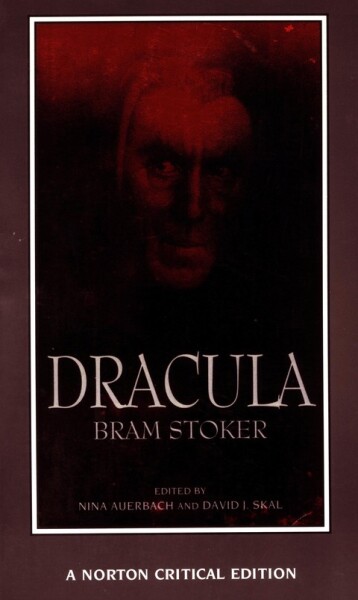SNQ: Bram Stoker’s “Dracula”
by Miles Raymer

Summary:
Well over a century since its original publication, Bram Stoker’s Dracula is a classic that stands the test of time. This captivating epistolary novel tells the tale of a small group of people who encounter a mysterious and daunting horror. Throughout their harrowing adventure, these heroes leverage their capacities for friendship, love, cooperation, courage, and loyalty to overcome their crafty vampiric adversary. Brimming with creepy imagery, metaphorical richness, and interpersonal tenderness, Dracula celebrates the humanist aspirations of Victorian England with shadowy panache.
Key Concepts and Notes:
- In a very refreshing way, the text of Dracula feels old. Contrasting most modern fiction, this novel is a very slow burn. Stoker’s methodical build-up of frightening and tense moments instills a classic sense of dread in the reader that lingers to the last page.
- The novel is a terrific example of old-school detective and mystery genre writing. Stoker parses out information using the letters, journals, and voice recordings of his main characters, conveying a gradual but steady sense of discovery with a satisfying conclusion.
- The actual character of Count Dracula is somewhat less present in the story than I imagined he would be, but I think this just makes him even more elusive and menacing. As Dracula himself declares: “I love the shade and the shadow” (29).
- The novel contains a solid cast of characters, my favorites being Mina Harker and Van Helsing. Van Helsing is a wonderful Victorian hero––more a man of brains than brawn. His scientific and medical mindset is aptly coupled with an openness to the fantastical that would be necessary for a man trying to hunt vampires, and his sense of duty and loyalty to his friends is inspiring. For her part, Mina Harker is a fantastic heroine––intelligent, caring, and resilient as she wills herself to resist Dracula’s evil pull. Although Dracula‘s gender politics are admittedly dated, I actually loved how the archetypical male and female roles complemented one another throughout the story.
- The narrative of Dracula in modern culture tends to be dominated by gruesome violence and epic battles between needle-toothed monsters and stake-wielding hunters. But Stoker’s vampire is unnervingly subtle––more a deliverer-of-decay than a blood-soaked-butcher. Stoker’s Dracula is perhaps best interpreted an insidious illness that sucks away a loved one’s virtuous qualities and stealthily replaces them with a pure and deathless evil. In the first half of the novel, Stoker deftly captures the grief and trauma associated with witnessing this horrific process and feeling powerless to change it. And in the second half, he does an equally commendable job of showing how brave people can rally and come together in the wake of loss to prevent further tragedy.
Favorite Quotes:
I seek not gaiety nor mirth, not the bright voluptuousness of much sunshine and sparkling waters which please the young and gay. I am no longer young; and my heart, through weary years of mourning over the dead, is not attuned to mirth. Moreover, the walls of my castle are broken; the shadows are many, and the wind breathes cold through the broken battlements and casements. I love the shade and the shadow, and would be alone with my thoughts when I may. (29)
There will be pain for us all; but it will not be all pain, nor will this pain be the last. We and you too––you most of all, my dear boy––will have to pass through the bitter water before we reach the sweet. But we must be brave of heart and unselfish, and do our duty, and all will be well! (154)
The world seems full of good men, even if there are monsters in it. (198)
We women have something of the mother in us that makes us rise above smaller matters when the mother-spirit is invoked. (203)
You know what we have to contend against; but we, too, are not without strength. We have on our side power of combination––a power denied to the vampire kind; we have resources of science; we are free to act and think; and the hours of the day and the night are ours equally. In fact, so far as our powers extend, they are unfettered, and we are free to use them. We have self-devotion in a cause, and an end to achieve which is not a selfish one. These things are much. (210)
True friends, I want you to bear something in mind through all this dreadful time. I know that you must fight––that you must destroy even as you destroyed the false Lucy so that the true Lucy might live hereafter; but it is not a work of hate. That poor soul who has wrought all this misery is the saddest of all. Just think what will be his joy when he too is destroyed in his worser part that his better part may have spiritual immortality. You must be pitiful to him too, though it may not hold your hands from his destruction. (268-9)
It is really wonderful how much resilience there is in human nature. (279)
We want no proofs; we ask none to believe us! This boy will someday know what a brave and gallant woman his mother is. Already he knows her sweetness and loving care; later on he will understand how some men so loved her, that they did dare much for her sake. (327)
“…shadowy panache.”
that alone made me want to read this book. Hopefully i’ll live to be as old as dracula to finish all the books on my list.